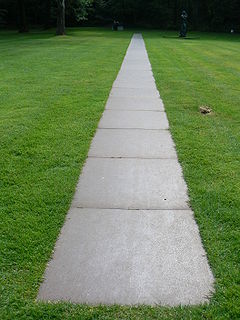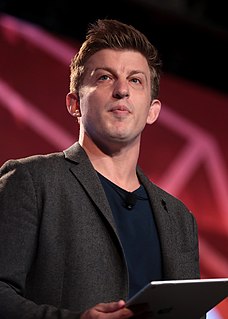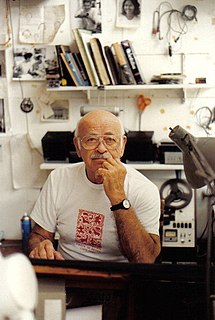A Quote by Jacque Fresco
A Resource-Based Economy is in the application of the methods of science with human concern and environmental concern. If we used the scientific method throughout the world, the probability of war drops to zero. The probability of human suffering disappears. Deprivation, poverty, crime - all those things tend to disappear because there's no basis. I'm strictly concerned with the environment that people are raised in and if that environment is altered, so will behaviors be altered.
Quote Topics
Altered
Application
Based
Basis
Because
Behaviors
Concern
Concerned
Crime
Deprivation
Disappear
Disappears
Drops
Economy
Environment
Environmental
Human
Human Suffering
Method
Methods
People
Poverty
Probability
Raised
Resource
Science
Scientific
Scientific Method
Strictly
Suffering
Tend
Things
Those
Throughout
Used
War
Will
World
Zero
Related Quotes
To those who think that all this sounds like science fiction, we point out that yesterday's science fiction is today's fact. The Industrial Revolution has radically altered man's environment and way of life, and it is only to be expected that as technology is increasingly applied to the human body and mind, man himself will be altered as radically as his environment and way of life have been.
If we are genuinely concerned about the environment and the fellow human beings, and want to end territorial disputes, war, crime, poverty, hunger, and the other problems that confront us today, the intelligent use of science and technology are the tools with which to achieve a new direction – one that will serve all people, and not just a select few.
I argue for a relational conception of the person as a basis for an environmental ethic that can encourage us to preserve the environment not solely on the basis of satisfying human interests and not solely because we might attribute intrinsic value to the environment, but because the environment is something with which we can potentially enter into constructive relationship, as part of what makes us who we are or transform who we are and open us up to new interests.
It ought to concern every person, because it is a debasement of our common humanity. It ought to concern every community, because it tears at our social fabric. It ought to concern every business, because it distorts markets. It ought to concern every nation, because it endangers public health and fuels violence and organized crime. I’m talking about the injustice, the outrage, of human trafficking, which must be called by its true name - modern slavery.
In my work, I am not attempting to predict the future. I am only pointing out what is possible with the intelligent application and humane use of science and technology. This does not call for scientists to manage society. What I suggest is applying the methods of science to the social system for the benefit of human kind and the environment.
Preservation of the environment, promotion of sustainable development and particular attention to climate change are matters of grave concern for the entire human family. No nation or business sector can ignore the ethical implications present in all economic and social development. With increasing clarity scientific research demonstrates that the impact of human actions in any one place or region can have worldwide effects.
There is, however, a moral basis for the vegetarian diet for which the indeterminate value of an animal's life takes on irrelevance. And that moral basis is a concern for the environment, a value as absolute as the value we all place on human life, since humanity will not survive for long on a poisoned planet. To be an environmentalist who happens to eat meat is like being a philanthropist who doesn't happen to give to charity.
The natural environment is not particularly hospitable to human life ... the key to having a good environment is improving it through work... . Energy is fundamentally an environmental improver and if we classify it that way it makes sense out of a lot of these controversies... . It's our obligation and our right to make [our environment] as good for human beings as possible. With that view, it's very easy for people to understand precisely the reason it's good to alter it - because it doesn't naturally come the way we need it to be.
I don't know that there were any rules for documentary photography. As a matter of fact, I don't think the term was even very precise. So as far as I'm concerned, the kind of photography I did in the FSA was the kind of photography I still do today, because it is based on passionate concern for the human condition. That is the basis of all the work that I do.

































